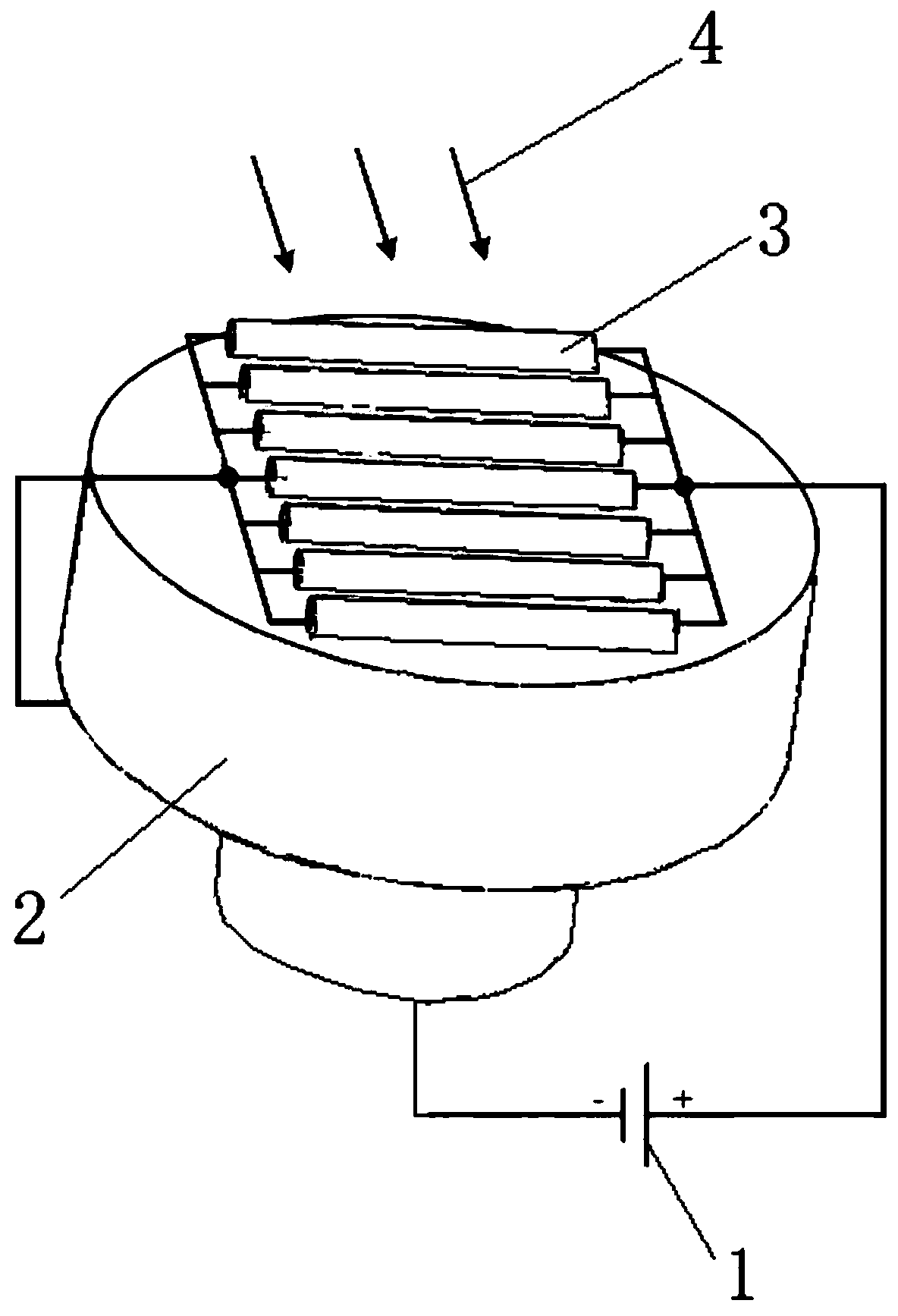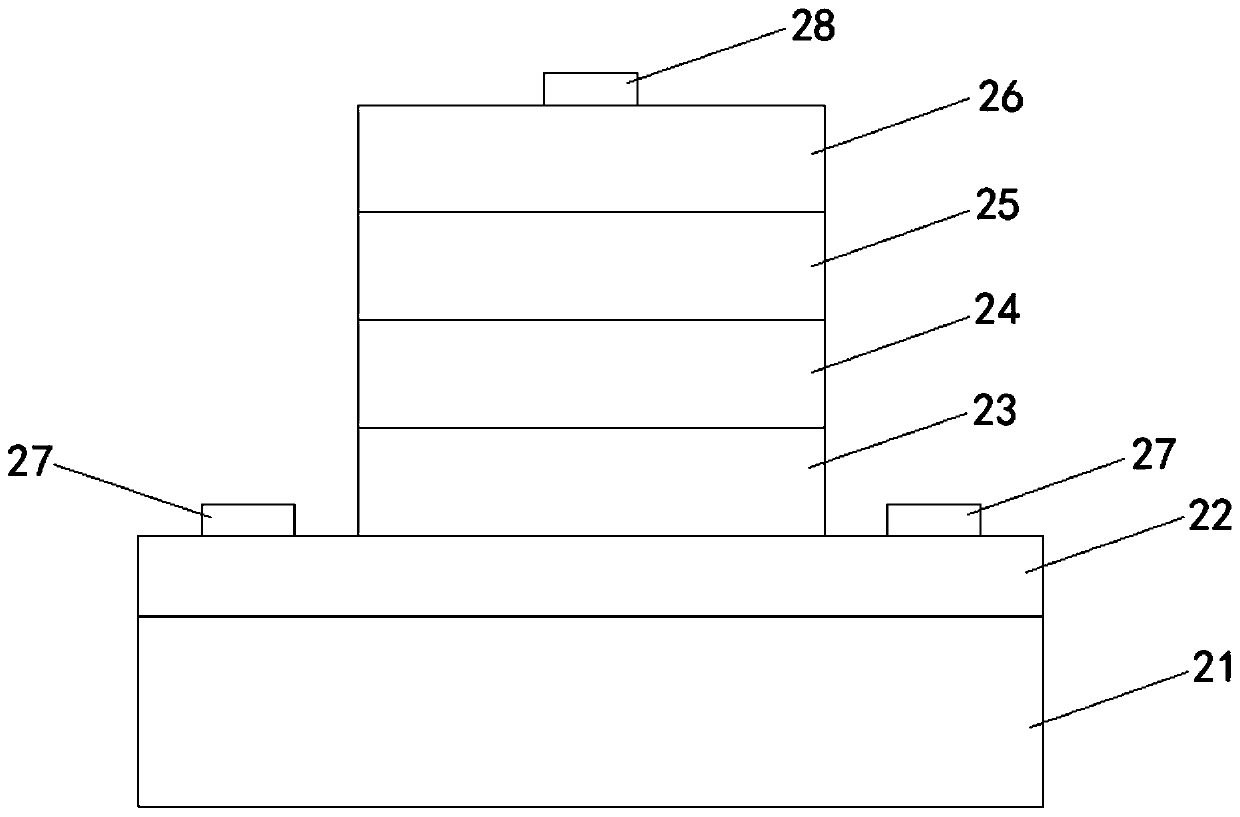Solar-blind ultraviolet single-photon avalanche detector
A single-photon avalanche and detector technology, applied in photovoltaic power generation, semiconductor devices, nanotechnology, etc., can solve problems such as increased power consumption, inconvenient integration, and rapid changes in dynamic parameters, and achieve reduced device packaging costs, reduced production costs, Good preparation and integration effect
- Summary
- Abstract
- Description
- Claims
- Application Information
AI Technical Summary
Problems solved by technology
Method used
Image
Examples
Embodiment 1
[0035] See figure 1 , the solar-blind ultraviolet single-photon avalanche detector of this embodiment includes a voltage source 1 , an avalanche photodetector 2 and a plurality of nanowires 3 .
[0036] Avalanche photodetector 2 is a sun-blind ultraviolet AlGaN avalanche photodetector working in Geiger mode. See figure 2 , the avalanche photodetector 2 sequentially includes a substrate layer 21 , an n-type layer 22 , an i-type absorbing layer 23 , an n-type separation layer 24 , an i-type avalanche layer 25 and a p-type layer 26 from bottom to top. An n-type ohmic contact electrode 27 and a p-type ohmic contact electrode 28 are respectively provided on the n-type layer 22 and the p-type layer 26 . The n-type ohmic contact electrode 27 and the p-type ohmic contact electrode 28 are the negative electrode and the positive electrode of the avalanche photodetector 2 respectively. The bottom surface of the substrate layer 21 is the photosensitive surface of the avalanche photode...
PUM
| Property | Measurement | Unit |
|---|---|---|
| diameter | aaaaa | aaaaa |
Abstract
Description
Claims
Application Information
 Login to View More
Login to View More - R&D
- Intellectual Property
- Life Sciences
- Materials
- Tech Scout
- Unparalleled Data Quality
- Higher Quality Content
- 60% Fewer Hallucinations
Browse by: Latest US Patents, China's latest patents, Technical Efficacy Thesaurus, Application Domain, Technology Topic, Popular Technical Reports.
© 2025 PatSnap. All rights reserved.Legal|Privacy policy|Modern Slavery Act Transparency Statement|Sitemap|About US| Contact US: help@patsnap.com


